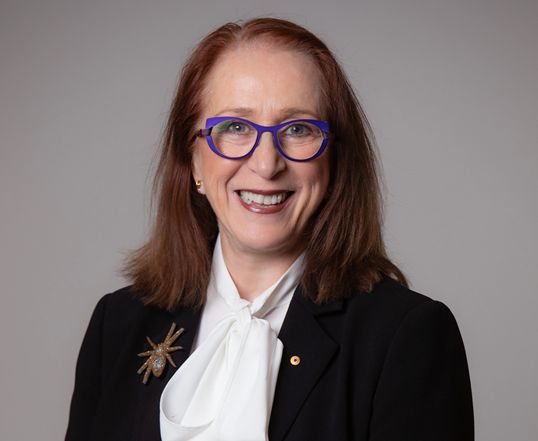Let’s resist the worst of times with the best of humanity

When I began my term as President of the Australian Human Rights Commission seven years ago, the marriage equality plebiscite was engulfing our nation, in much the same way as the recent Voice referendum did.
Although the outcomes were different, the focus on human rights which framed the respective debates serves to remind us that the application and experience of human rights are elemental to the way we function as a society.
As I conclude my term as President, the war in Gaza is inflaming tensions across our country and having terrible impacts on our Jewish, Palestinian, Muslim and Arab communities. At the same time, complex issues such as domestic violence, child justice, immigration, housing, the environment and climate change – among others – continue to torment and frustrate many people and communities.
With a population as diverse as contemporary Australia, there will always be intersections and friction between people who fail to take the time to understand or care about the welfare of others, or who believe their rights – or their idea of their rights – should prevail over the rights of others.
Sadly, we see the consequences of this happening everyday – with racist attacks on our First Nations peoples, on refugees and on Jewish and Muslim people, even in their places of worship; with women being murdered in their homes and assaulted in their workplaces; and with violence and abuse being perpetrated on the elderly, young people, people with disability, people of diverse sexualities and genders, and people of faith.
But the deprivation of rights also plays out in other less overtly hostile ways: the inability to access spaces and information due to a person’s disability; the denial of services and opportunities because of a person’s race, age, citizenship status, sexual orientation or gender identity; and the constant erosion of privacy, safety and agency wrought by advances in technology.
Whenever we deny the rights of others – either through action or inaction – we deny ourselves one of the best and most important parts of what it means to be human: having the capacity to feel empathy and practise respect.
These values form the glue which binds us together, allowing us to fathom the dreams and nightmares of others and then use that understanding to live together – as famously expressed in the Universal Declaration of Human Rights – ‘free and equal in dignity and rights.’
Activating these values is by no means an easy process, as violence, abuse and discrimination create formidable barriers to the exercise of compassion and empathy.
Here in Australia, this tension is currently playing out most evidently in local responses to the horrors and loss of life from the war in Gaza and the terror unleashed by Hamas. Some of these responses are appropriate but some are not, and we rightly condemn those grounded in violence and racism.
The traumas created by the conflicts and catastrophes in Ukraine, Sudan, Myanmar, Afghanistan and elsewhere are also felt here, as are tensions related to the history, culture and politics of our own country as well as the countries from which much of our population is drawn.
In the face of all this turmoil, it can often be challenging to find common ground. Indeed, through our regular consultations with the diverse communities the Commission and our Commissioners serve, we recognise that many people feel diminished when their experiences of being harmed are equated with those of the people they perceive as harming them.
Holding these tensions is a key part of the Commission’s remit as Australia’s National Human Rights Institution. However, part of our remit is also expressing these tensions in a way that aligns with the values of empathy, equity, compassion and respect which we seek to promote and protect as an institution.
For example, acknowledging the odious rise of antisemitism in Australia while also acknowledging how this intersects with anti-Palestinian and anti-Arab racism as well as Islamophobia is an important part of finding common ground, in spite of the rage and grief being felt across both communities.
Indeed, there are many people within the Jewish and Palestinian communities who have been and are reaching out with compassion and understanding to engage in constructive dialogue. This is admirable. It demonstrates a genuine commitment to the curative power of human rights.
If we are to live the values of human rights – which we must all acknowledge are fundamental to the healthy functioning of our community and democracy – we must all ensure the actions we undertake and the language we use to advocate for the rights of some do not undermine the rights of others.
This is the reasoning and sentiment that should guide all of us, even in the worst of times: that human rights exist to protect everyone, everywhere, everyday.
By having empathy and compassion, and by making dignity real for everyone by respecting each other, we keep true to our shared humanity and to the best part of ourselves.
President Croucher will deliver a valedictory address today at the National Press Club in Canberra.
ENDS | Media contact: media@humanrights.gov.au or +61 457 281 897
